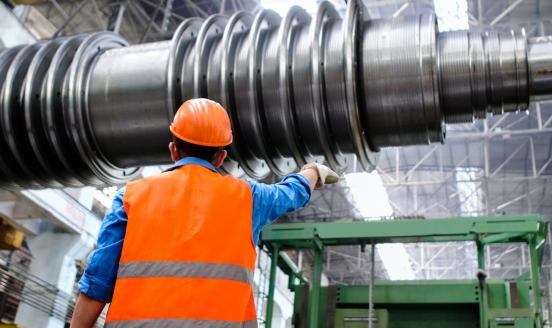A European gas market for everyone
The European energy landscape has changed markedly in 2014. Now the EU must rethink its relationship over gas with Russia and Ukraine.
The European energy landscape has changed markedly in 2014. What was unimaginable in 2013 has become possible: Russia might stop gas supplies to European Union countries, the EU might survive the winter without Russian gas, Ukraine might refrain from importing gas from Russia and reform its gas sector, South Stream might be shelved and Russia might invest massively in gas exports to China and Turkey, and unconventional gas production might translate into a glut of cheap liquefied natural gas. Not all of these will happen, but the possibilities mean that the EU must rethink its relationship over gas with Russia and Ukraine.
The EU must rethink its relationship over gas with Russia and Ukraine
Europe’s primary goal for gas is cheap and reliable supplies. This can be best achieved by competition between all suppliers in a liquid European gas market. Suppliers that still benefit from being able to charge higher prices in markets in which they cannot be contested -- such as Gazprom -- resist greater competition. And several European companies and countries support for their own purposes Gazprom’s strategy of maintaining market segmentation. Thanks to Gazprom’s segmentation strategy, Germany enjoys lower gas prices, Austria serves as a trading hub and Slovakia generates transit revenues. In addition, many member states still want to keep political control over their gas sectors.
Therefore, if a truly functioning liquid European gas market is to be created, several member states face having to give up their current comfortable situations. Some will even have to accept being worse-off in the short term. For the greater good, Europe needs workable gas sector rules and the European institutions must be empowered to defend them. There should be tangible rules on solidarity, security-of-supply requirements that are binding on market participants, a prohibition of individually beneficial gas deals outside the European framework, network development based on a European (and not only national) perspective and strict enforcement of competition policy. If member states really engage to create a predictable, large and liquid European gas market, Europe will develop into the most attractive destination for gas coming from all hemispheres. This will make all European gas consumers better off.
If a liquid European gas market is to be created, several member states face having to give up their current comfortable situations
And in terms of gas markets, Europe goes beyond the EU. The EU’s gas market rules are already binding in eight non-EU countries of the ‘Energy Community’. Ukraine is one. The EU has a pivotal role in enabling Ukraine to develop a functioning gas market that will allow the country to become part of the European internal gas market. Without EU support, the fragile Ukrainian political system will not succeed in carrying out crucial reforms, such as increasing household tariffs by a factor of four to eight, opening the country’s gas infrastructure to all users, abolishing multiple gas tariffs and restructuring the debt-ridden gas sector monopoly Naftogaz. A strengthened Energy Community to support and monitor the implementation of EU energy sector rules, coupled with technical and financial assistance and credible solidarity promises, should ease the difficult transition. The immediate demonstration of EU solidarity would be commitment to continue gas supplies to Ukraine (‘reverse flows’) and ensuring that the EU-Ukraine border points are not treated differently to border points within the EU.
If, however, the EU fails to support Ukraine in its struggle to develop a functioning gas sector, Ukraine will likely forego the short-term hardship of reform for long-term dependence on Russia. The price of for Ukraine would be high: a politicised and murky gas sector and possible handing of control over its gas pipelines and storage to Gazprom. This in turn would certainly enable Russia to regain significant leverage over Ukraine’s politics. Such a scenario would increase Gazprom’s influence over gas markets in central and eastern Europe and hence preclude the completion of the EU internal gas market.
If the EU fails to support Ukraine in its struggle to develop a functioning gas sector, Ukraine will likely forego the short-term hardship of reform for long-term dependence on Russia
In the short term, Russia might attempt to prevent both the completion and extension of the internal gas market. It might do so by using selective carrots such as projects favourable to individual countries, or selective threats such as supply cuts. The likelihood and impact of such eventualities can be mitigated if EU member states show determination and unity. In particular, tangible rules on solidarity would be a strong signal. In the longer term, even Russia will find it benefits from a predictable, large and liquid European gas market that extends beyond the EU borders.
This article was first published on European Voice and Rzeczpospolita
Read more:



